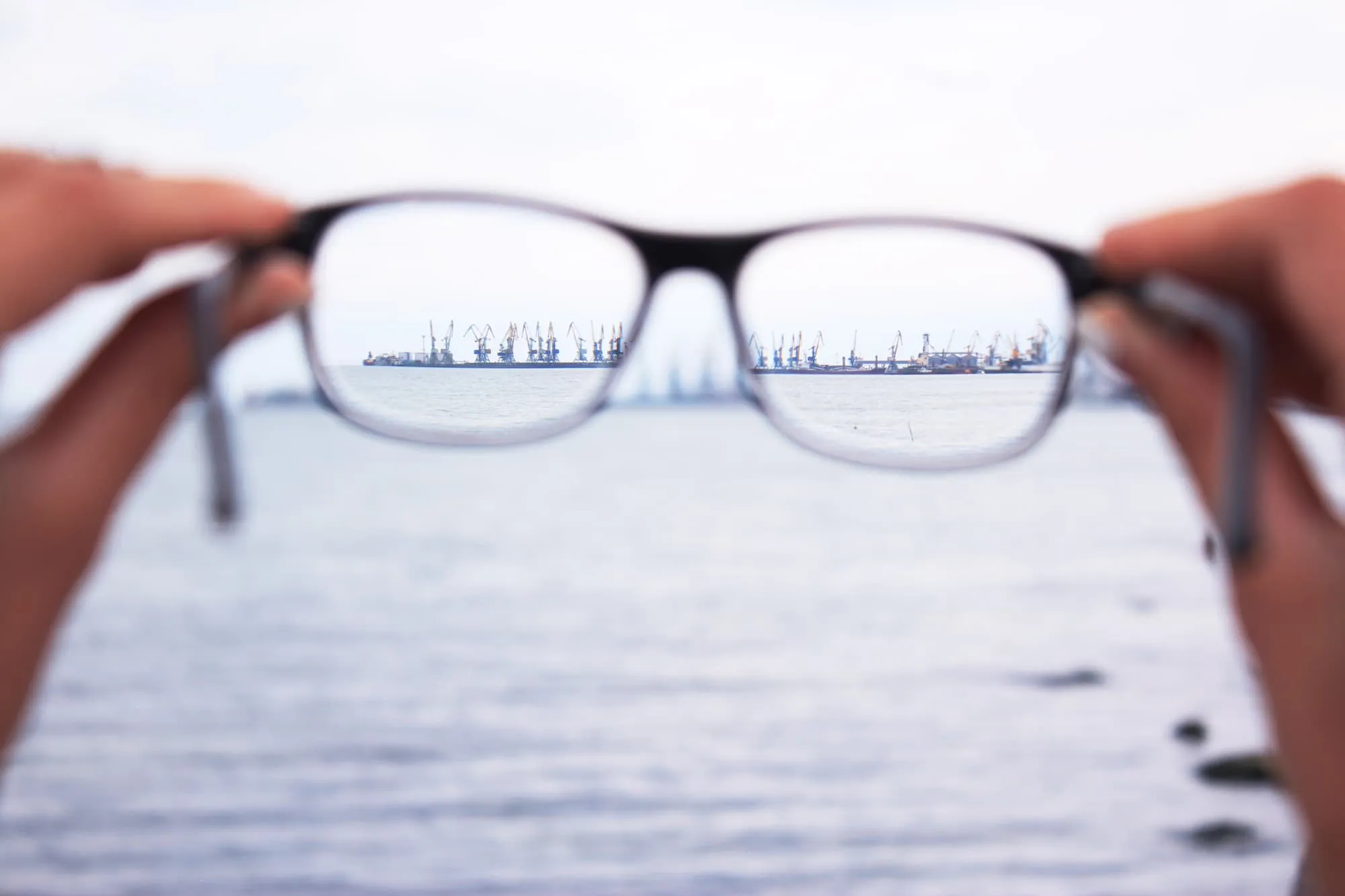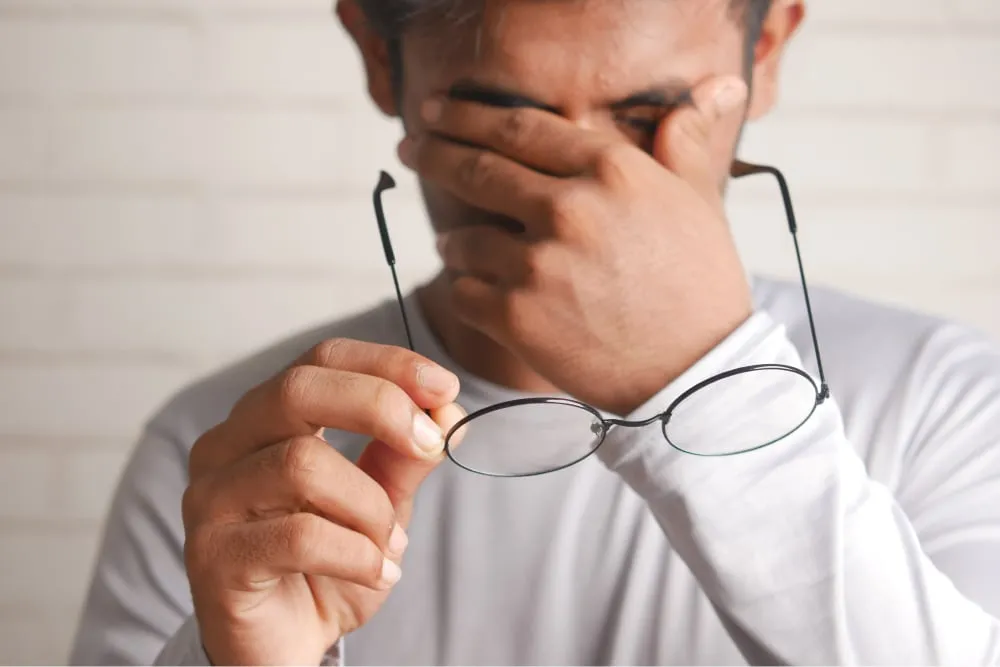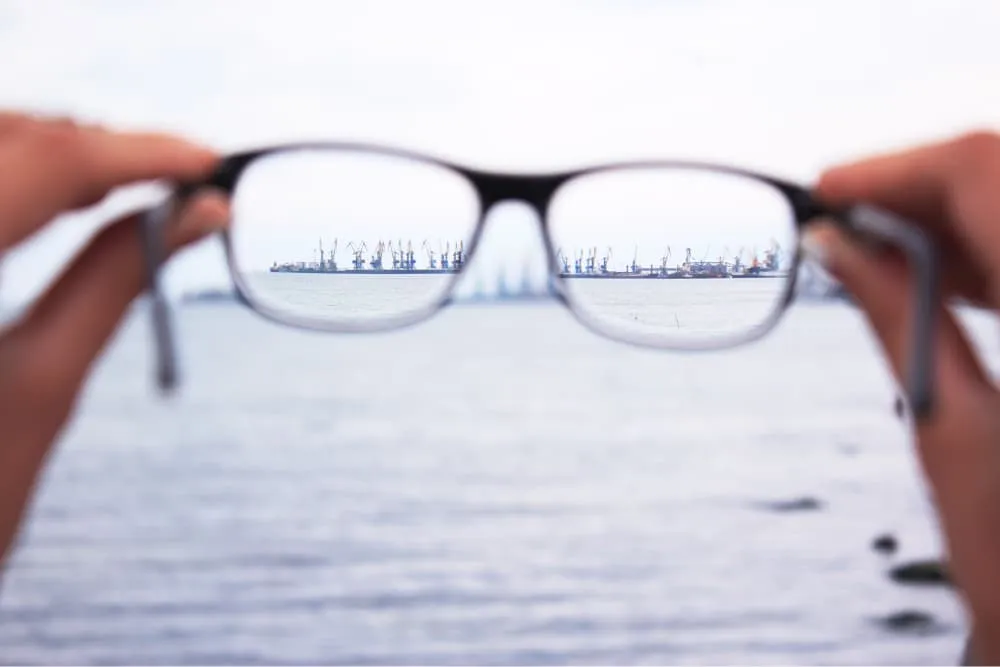Does anorexia affect the eyes?
Yes, anorexia nervosa can affect the eyes. One common eye condition seen among people with anorexia is orbital fat atrophy, which is when the fat cells around the eyes shrink. Orbital fat atrophy can lead to lagophthalmos, a condition that keeps the eyes from completely closing while sleeping. When the eyes can’t close during sleep, it can irritate the eyes.2
One study found women with anorexia had physical changes to their eyes.1 The research analyzed the macula, the part of the eye responsible for processing light and registering details in the center of vision. The women with anorexia had a significantly thinner macula, and the nerves surrounding the macula appeared thinner. Women with anorexia also had less dopamine neurotransmission, which helps the brain process images.
Does anorexia affect the eyes?
Yes, anorexia nervosa can affect the eyes of people actively struggling with the condition and those receiving treatment.6 It has been connected to physical changes in the body and altered hormone levels which can lead to anatomical and functional impairment, impacting the eyes themselves, the areas around the eyes, and someone’s vision.
Some of the most common optical issues connected to anorexia nervosa include:6
- Dry eyes
- Lagophthalmos, or the incomplete closure of the eyelids
- Acute or chronic vision problems, including vision loss
- Ophthalmoplegia, or paralysis of the muscles that control the eyes
- Nystagmus, a condition that causes repetitive, uncontrolled movements in the eyes
Many of these conditions are triggered by nutritional deficiencies brought on by the disordered eating patterns involved with AN, with the lack of vitamin B1 being especially central to some of these issues.6
Physical changes linked to anorexia nervosa
Studies linking AN to optical issues go back to at least 2010, when one examination found that women with anorexia nervosa had physical changes to their eyes.
The research analyzed the macula, the part of the eye responsible for processing light and registering details in the center of vision, concluding that participants with AN had a significantly thinner macula. Nerves surrounding the macula, including those near the retina and optic nerve, also appeared thinner.1
Another common eye condition seen among people with anorexia is orbital fat atrophy, which is when the fat cells around the eyes shrink. Orbital fat atrophy can lead to lagophthalmos, a condition that keeps the eyes from completely closing while sleeping. When the eyes can’t close during sleep, it can further irritate the eyes.2
{{link-bank-two-column}}
Does anorexia affect vision?
There are relatively few scientific studies examining AN’s impact on the eyes, but what has been found indicates that the condition may impact vision.
In the 2010 study, researchers noted that the physical changes of the macula were early signs associated with progressive blindness. Further research is needed to determine if the changes were permanent or reversible with continued treatment.1
That study also found that the participants with anorexia nervosa had less dopamine neurotransmission. Among many other functions, this multifaceted hormone helps the brain process images, so it’s possible that dysfunctional neurotransmission could impact someone’s vision.1
Other research on the topic found that malnutrition in women with AN lead to acute vision loss, though the condition was found to be reversible once normal eating patterns resumed.3 That may be due to the outsized role vitamins play in preserving vision and eye health.
Treatment for anorexia eyes
When treating optical issues, whether or not someone is struggling with an eating disorder, vitamins often play a crucial role. Vitamin A helps keep the cornea clear, vitamins E and C help protect eye cells, including light-sensitive cone cells, and various forms of vitamin B can help prevent common eye conditions, such as glaucoma.4
The disordered eating patterns involved in AN often lead to malnutrition, particularly in cases of severe anorexia nervosa. For those people, it may be helpful to include supplements for these vitamins or others in their daily regimen, in order to help bring vision back to previous levels or correct issues.
In cases involving potentially serious eye damage, more drastic measures may be needed. If an individual develops lagophthalmos, they may have the option of surgery, depending on the severity. During the procedure, called tarsorrhaphy, a doctor will sew the top and bottom eyelid together to narrow the opening in order to protect the cornea and reduce irritation.5
Finding treatment for anorexia nervosa
Still, the best way to help with eye damage caused by AN is by treating the eating disorder directly. Usually, when the body receives proper and steady nourishment, damage to the eyes will reverse or lessen naturally.
But beyond its impact on vision or eye health, anorexia nervosa is a serious condition, and finding proper treatment is crucial. Consulting with your primary care physician, therapist, psychiatrist, or another trusted medical professional is a great place to start. These experts can help you secure an official diagnosis to open up treatment options or guide you toward successful recovery programs.
Remote treatment for anorexia
At Within Health, we can also provide help. Our multidisciplinary team is trained in many different areas that serve the mental and physical aspects of anorexia nervosa and other eating disorders, and we can provide you with a treatment team tailored to suit your individual case.
If you or a loved one are struggling with AN, you're not alone. Help is always available, and recovery is always possible.
Call (866) 293-0041









































